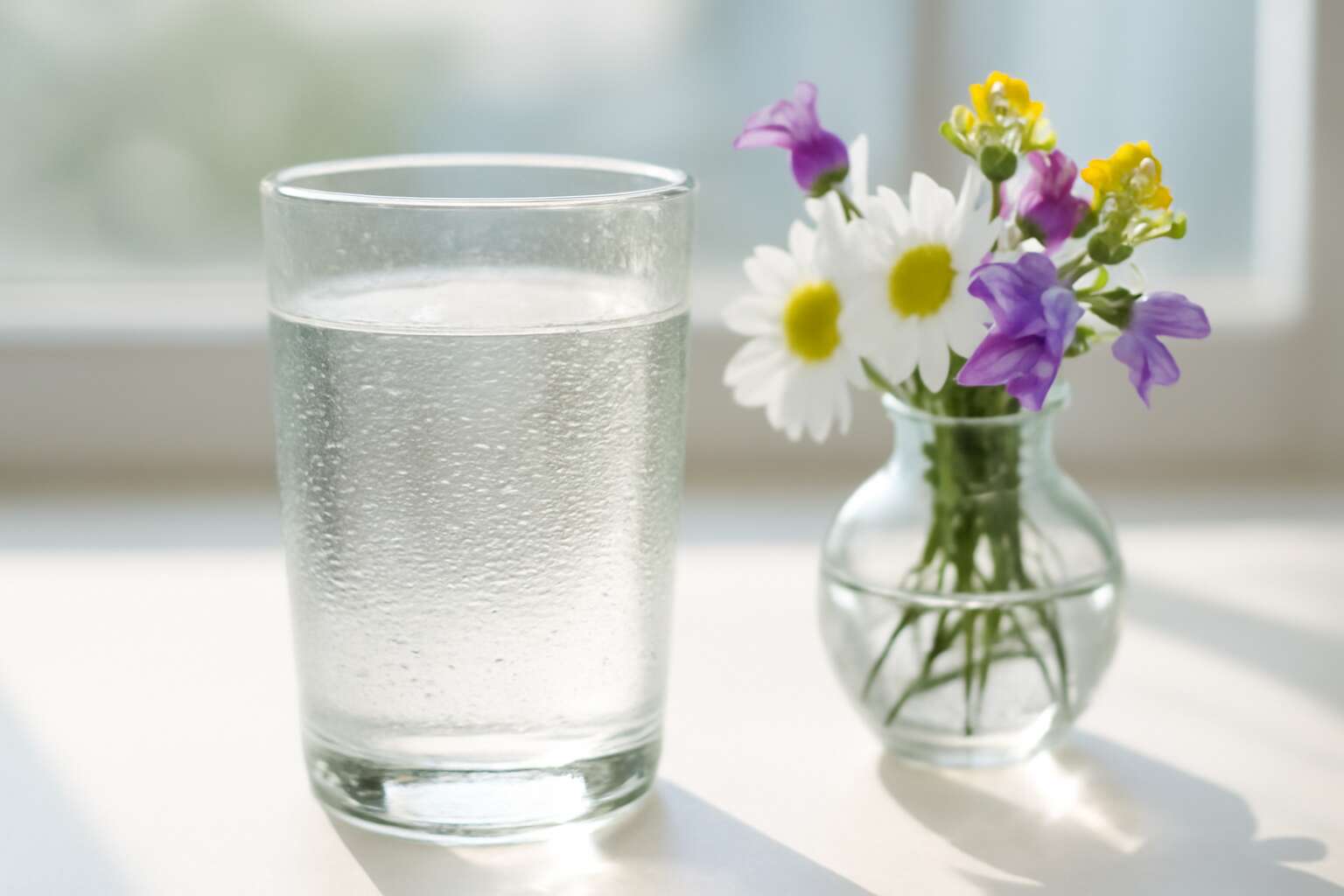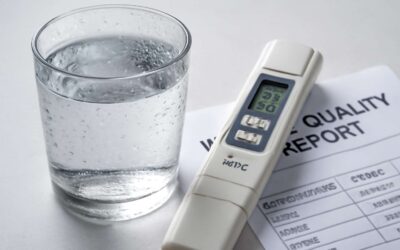Understanding Headaches and Their Causes
Types of Headaches – Migraine, tension, cluster, sinus headaches
Headaches are as ancient as human suffering itself, yet their origins remain shrouded in mystery. Understanding the root causes reveals a fascinating tapestry of physiological and psychological factors. Many headaches stem from dehydration, a silent culprit lurking beneath the surface. When the body lacks sufficient fluid, the brain temporarily shrinks away from the skull, triggering pain and discomfort. This is where the question arises: can drinking water help with headaches? The answer often lies in the subtle balance of hydration and the body’s intricate response to fluid loss.
Among the various types of headaches—migraine, tension, cluster, and sinus—their triggers differ, but dehydration can exacerbate or even instigate each. For instance, tension headaches might escalate from prolonged dehydration, while sinus headaches can intensify when mucous membranes become dry and inflamed. Recognising these patterns underscores the importance of hydration, as sometimes the simplest remedy—drinking water—can be surprisingly effective.
In fact, hydration’s role in headache relief is sometimes overlooked, yet it’s a critical factor in managing pain. For some, a glass of water can be a gentle yet powerful intervention, addressing one of the most accessible and natural causes of headache discomfort.
Common Causes of Headaches – Dehydration, stress, lifestyle factors, dietary triggers
Headaches can feel like unwelcome storm clouds gathering unexpectedly, disrupting even the most productive days. Beneath their often-blinding intensity lies a tapestry of causes, many of which are surprisingly simple to address. Dehydration, for instance, is a common culprit that often goes unnoticed. When the body loses more fluid than it takes in, the brain can temporarily shrink away from the skull, causing that familiar, dull ache. But can drinking water help with headaches? The answer is frequently yes—hydration can be a crucial, natural remedy for alleviating discomfort.
Beyond dehydration, other factors contribute to headache development, such as stress, lifestyle habits, and dietary triggers. These elements can create a perfect storm, intensifying the pain or triggering new episodes. Recognising these patterns highlights the importance of maintaining a balanced intake of fluids—sometimes, the simplest intervention is the most effective. For those seeking relief, understanding the connection between hydration and health becomes a vital part of managing recurring headaches. After all, staying well-hydrated isn’t just good for overall wellness; it might be the key to easing that persistent headache strain.
Impact of Dehydration on Headache Development – How fluid loss can trigger or worsen headaches
Headaches often feel like unwelcome guests—suddenly arriving and lingering without warning. Behind many of these episodes lies a surprisingly straightforward culprit: dehydration. When the body loses more fluid than it takes in, the brain can subtly shrink away from the skull, creating a pull that manifests as a dull, persistent ache. This phenomenon underscores a vital question: can drinking water help with headaches? The answer is frequently yes. Proper hydration is not just about quenching thirst; it’s a fundamental component of neurological stability.
Dehydration impacts the body’s delicate balance of electrolytes and blood flow, both of which play crucial roles in head pain. When fluid levels drop, blood volume decreases, potentially reducing oxygen delivery to the brain and triggering or intensifying headache symptoms. Recognising these signs early can make a significant difference. Sometimes, simply increasing water intake can disrupt this cascade, providing quick relief. For those prone to recurrent headaches, maintaining adequate hydration levels could be the missing link in their pain management puzzle.
The Role of Hydration in Headache Prevention and Relief
How Water Affects Brain Function – Maintaining optimal hydration for neurological health
Hydration is often the silent architect of our cognitive landscape. When the brain’s delicate balance of fluids is disturbed, the consequences ripple outward—manifesting as headaches that seem to intrude uninvited into our day. The question lingers: can drinking water help with headaches? The answer lies in understanding how vital water is to brain function. Water isn’t just about quenching thirst; it’s the foundation of neurological health, ensuring cells communicate seamlessly and toxins are flushed away. Without adequate hydration, the brain shrinks slightly, and this subtle change can trigger discomfort and pain.
Maintaining optimal hydration isn’t merely about preventing dehydration; it’s an act of respecting the brain’s intricate needs. When water levels drop, the blood becomes thicker, impairing oxygen delivery and nutrient transport—factors critical for mental clarity and pain regulation. For those seeking relief, paying attention to hydration might be a simple yet profound way to ease the burden of recurring headaches. After all, in the quiet act of drinking water, there resides a potent potential for restoring balance and clarity to our often tumultuous minds.
Dehydration and Headache Connection – Scientific evidence linking dehydration to headache severity
When a headache strikes, many wonder if a simple glass of water could be the remedy. Scientific studies consistently reveal a compelling link between dehydration and headache severity, suggesting that the answer might be closer than we think. Dehydration isn’t just an inconvenience; it’s a stealthy contributor to pain, subtly stripping away the brain’s hydration and amplifying discomfort. The connection is clear—without proper hydration, the likelihood of experiencing intense headaches increases significantly.
Research indicates that even mild dehydration can trigger or worsen headaches, as the brain’s delicate fluid balance is disrupted. This disturbance causes the brain to temporarily shrink, pulling away slightly from the skull and increasing pressure on surrounding tissues. For those battling recurring headaches, paying close attention to hydration status could be a vital strategy. In fact, many headache sufferers find that increasing their water intake leads to noticeable relief—highlighting that, sometimes, the solution is as simple as drinking more water.
- Hydration levels directly influence cerebral blood flow
- Dehydration impairs oxygen and nutrient delivery
- Fluid deficiency can heighten pain sensitivity
The question remains—can drinking water help with headaches? Evidence suggests a resounding yes, especially when dehydration is the culprit behind persistent pain.
Benefits of Drinking Water for Headache Symptoms – Immediate relief, long-term prevention benefits
When a headache strikes, one of the simplest yet most powerful remedies might be hiding right in your glass. Hydration plays a crucial role in maintaining neurological balance, and evidence suggests that can drinking water help with headaches more than just quenching thirst. Proper hydration can act as a natural antidote, easing symptoms swiftly and effectively.
Drinking water offers immediate relief by restoring the brain’s fluid environment, which can alleviate pressure and reduce pain. Long-term, consistently staying well-hydrated helps prevent the onset of dehydration-related headaches. This is especially vital for individuals prone to recurrent migraines or tension headaches. In fact, water’s influence on cerebral blood flow and nutrient delivery makes hydration a key player in headache prevention.
- Replenishes lost fluids quickly
- Reduces brain pressure and pain
- Supports neurological health over time
So, can drinking water help with headaches? The answer is often yes—particularly when dehydration is the underlying cause. Ensuring adequate hydration isn’t just about comfort; it’s a potent strategy to safeguard your neurological well-being and keep headache symptoms at bay. Sometimes, the simplest solutions hold the greatest power in fighting persistent pain.
Scientific Studies and Evidence on Water Intake and Headaches
Research Findings – Studies supporting hydration as a headache remedy
Emerging scientific research robustly supports the idea that can drinking water help with headaches, especially those linked to dehydration. A landmark study published in the Journal of Headache and Pain found that even mild dehydration can significantly amplify headache intensity in sufferers. Researchers observed that increasing water intake resulted in measurable reductions in headache severity, highlighting hydration’s pivotal role in neurological health.
Further evidence from clinical trials indicates that hydration therapy can serve as both a rapid remedy and a preventative measure for headaches. An interesting aspect is how dehydration impacts brain function—fluid loss can lead to decreased blood volume, which in turn reduces oxygen and nutrient flow to the brain, intensifying pain signals. This underscores the importance of maintaining optimal hydration levels, as it directly influences the pathophysiology of headaches.
- Dehydration triggers brain shrinkage, causing pain and discomfort.
- Proper hydration sustains neurotransmitter function, potentially reducing headache frequency.
Studies consistently suggest that can drinking water help with headaches more than just providing immediate relief; it also offers a sustainable approach to long-term headache management. The evidence makes it clear—staying well-hydrated isn’t merely good advice but a scientifically validated strategy to combat headaches effectively.
Expert Recommendations – Guidelines from health authorities on water consumption for headache management
Scientific consensus increasingly affirms that the simple act of can drinking water help with headaches, especially when dehydration lurks in the background. According to guidelines from prominent health authorities, maintaining proper hydration is not merely a matter of comfort but a strategic component of neurological resilience. The evidence suggests that consistent water intake can modulate headache intensity and frequency, offering a scientifically validated approach to management.
For those seeking clarity, the general recommendation is to consume around 2 to 3 litres of water daily, adjusting for individual factors such as activity level and climate. While the evidence is compelling, it’s essential to recognise that hydration isn’t a one-size-fits-all solution—yet, when dehydration is a contributing factor, it can be transformative. As research continues to unfold, experts agree that understanding the nuanced relationship between water intake and headache mitigation is vital for holistic health strategies.
Limitations of Current Research – Gaps and need for further studies
Scientific studies have begun to peel back the shadows surrounding the relationship between hydration and headaches, yet the evidence remains a labyrinth of partial truths and elusive clarity. While some research indicates that can drinking water help with headaches by alleviating dehydration, the results are often mixed and sometimes inconclusive. Many studies focus on small sample sizes or fail to account for individual variability, leaving gaps in our understanding of how hydration truly impacts headache severity.
One notable limitation is the lack of long-term, large-scale trials that can definitively establish causality. The current body of evidence suggests a correlation—dehydration often exacerbates headache symptoms—but whether increasing water intake can consistently prevent or diminish headaches across diverse populations remains a question unanswered. Bridging this chasm requires further, more rigorous research that explores variables such as age, lifestyle, and underlying health conditions.
- Are there specific thresholds of hydration that more effectively combat headaches?
- How do different types of headaches respond to changes in hydration levels?
Until such gaps are filled, the scientific consensus urges caution—can drinking water help with headaches? Certainly, in cases where dehydration is the culprit, the answer is a resolute yes. Yet, for complex, multifactorial migraines and tension headaches, hydration alone may not wield enough influence to serve as a cure-all. As shadows lengthen and research continues to unfold, the true depth of water’s role in headache mitigation remains an intriguing enigma, waiting for the light of further discovery.
How Much Water Should You Drink to Prevent Headaches?
General Hydration Guidelines – Daily water intake recommendations
Imagine a simple elixir capable of alleviating one of the most common ailments—headaches. The answer might be as straightforward as drinking more water! Scientific research consistently indicates that dehydration is a leading cause of headaches, prompting the question: can drinking water help with headaches? To harness this potential, understanding how much water to drink is essential. The general hydration guidelines recommend that adults aim for about 8 to 10 cups of water daily, although individual needs vary based on factors like activity level and climate.
Ensuring proper hydration doesn’t require a complex formula. A practical approach involves listening to your body’s signals—thirst and colour of your urine can serve as reliable indicators. If your urine is dark yellow, increasing water intake might be the key to easing those pounding pains. For those seeking a more structured plan, an ordered list of daily water intake recommendations might include:
- Drink at least 2 litres (about 8 cups) of water daily for optimal hydration.
- Adjust intake based on exercise intensity and environmental conditions.
- Include hydrating foods like fruits and vegetables to supplement water consumption.
By maintaining a consistent intake aligned with these hydration guidelines, you may find that can drinking water help with headaches—both in relief and prevention—becomes a simple yet effective strategy in your wellness arsenal.
Individual Factors Influencing Hydration Needs – Age, activity level, climate, health conditions
In the shadowed corridors of human physiology, hydration emerges as a silent guardian against the ache that haunts many. The question persists—can drinking water help with headaches? The answer, cloaked in scientific whispers, suggests that hydration levels wield a potent influence over the presence and intensity of these relentless pains. But how much water must one consume to stand a fighting chance? The truth is, individual factors carve unique pathways in this quest for relief.
Age, activity level, climate, and health conditions all cast their shadows over hydration needs. For instance, a young, active soul basking in the sun’s relentless gaze will require more water than an elderly individual in a temperate climate. Similarly, those burdened with certain health conditions might find their requirements altered—either heightened or diminished. To navigate this labyrinth, some experts advocate an ordered approach:
- Monitor your thirst—an ancient, instinctive signal.
- Observe the colour of your urine; dark yellow may be a herald of dehydration.
- Adjust water intake accordingly, aiming for approximately 2 litres daily as a baseline.
Yet, the secret may lie in balance—listening to your body’s subtle cues and recognising that hydration needs are as variable as the shadows that dance at dusk. In this delicate dance with water, understanding your unique needs becomes paramount—because, after all, can drinking water help with headaches, or is it merely the first step into a more complex symphony of wellness?
Practical Tips for Staying Hydrated – Daily routines, hydration drinks, monitoring urine color
In the labyrinth of human physiology, hydration often emerges as the understated hero—or sometimes the silent culprit—behind persistent headaches. The question lingers: can drinking water help with headaches? Scientific insights suggest that maintaining proper hydration can be a pivotal element in alleviating these unwelcome pains. But how much water is enough to tip the scales in favour of relief? The answer is as nuanced as the individual seeking it.
To prevent headaches linked to dehydration, establishing a consistent routine is vital. Incorporating hydration into daily life can be straightforward yet profoundly effective. Start your day with a glass of water, and aim to sip regularly throughout the hours that follow. For many, a target of approximately 2 litres per day provides a solid foundation—though this varies depending on personal factors such as activity level, climate, and health status. Monitoring urine colour can serve as a simple, practical gauge: pale straw often indicates optimal hydration, whereas darker hues may signal a need for more fluids.
For those who find plain water unappealing or struggle to meet hydration goals, incorporating hydration drinks or herbal teas can diversify intake.
- Set reminders to drink at regular intervals
- Keep a water bottle close by to encourage sipping
These habits foster a fluid balance that supports neurological health and may diminish headache frequency and severity. Ultimately, listening to your body’s subtle signals and recognising individual hydration needs can make all the difference—because, in the end, the simple act of drinking water might be one of the most accessible tools in combating headaches.
Other Hydration-Related Tips for Managing Headaches
Maintaining Electrolyte Balance – Role of electrolytes and hydration drinks
While a glass of water might seem like a simple fix, maintaining electrolyte balance is a crucial piece of the hydration puzzle when it comes to can drinking water help with headaches. Electrolytes—those tiny charged particles like sodium, potassium, and magnesium—are essential for nerve function and fluid regulation. When these levels are out of whack, headaches can quickly become unwelcome guests at your day’s festivities.
Hydration drinks fortified with electrolytes can serve as a supercharged alternative to plain water, especially after a vigorous workout or a long day in the sun. They help replenish lost minerals and support neurological stability, which is key for headache prevention and relief. For those wondering about the best approach, consider this:
- Electrolyte-rich beverages can restore balance faster than water alone.
- Proper mineral levels can reduce the severity and frequency of dehydration-induced headaches.
So, yes—can drinking water help with headaches? It’s a good start, but don’t forget the electrolytes for a more complete approach to hydration and headache management. After all, staying balanced might just be the secret weapon against that pounding pain.”
Avoiding Dehydrating Substances – Caffeine, alcohol, sugary drinks
While water is often hailed as the ultimate remedy, it’s vital to recognise that certain substances can undermine hydration efforts and exacerbate headaches. Caffeine, alcohol, and sugary drinks might seem tempting, especially during long, busy days, but they are notorious for being dehydrating. These substances can strip the body of vital fluids, making it even harder for can drinking water help with headaches effectively.
To optimise hydration, consider limiting these beverages, particularly if you’re prone to headaches. In some cases, replacing them with hydration drinks fortified with electrolytes can be a game-changer. They not only replenish lost minerals but also bolster neurological stability—an essential factor in preventing headache onset. Remember, a balanced approach to hydration involves more than just drinking water; it’s about making mindful choices that support your body’s fluid and mineral balance.
- Reduce intake of dehydrating substances like caffeine and alcohol.
- Opt for water or electrolyte-rich beverages to maintain hydration levels.
- Monitor your body’s responses and adjust your consumption accordingly.
Ultimately, avoiding these common pitfalls can significantly enhance your ability to manage headaches naturally. So, can drinking water help with headaches? Absolutely—when paired with smart lifestyle choices and mindful beverage consumption, hydration becomes a powerful ally in your quest for relief.
Timing of Water Intake – When to hydrate for maximum benefit
Timing your water intake can significantly amplify its benefits in headache management. Drinking water at strategic moments throughout the day allows your body to maximise hydration and prevents the onset of dehydration-related headaches. For instance, starting the day with a glass of water upon waking helps to kickstart hydration after hours of fasting during sleep. Similarly, sipping water consistently before, during, and after meals sustains fluid levels and maintains neurological stability.
Incorporating a routine where you drink water every couple of hours can be a game-changer, especially during periods of physical exertion or hot weather. To make this process seamless, consider setting gentle reminders or using a hydration app. Remember, can drinking water help with headaches? The answer is often yes, but only when hydration is optimised with mindful timing and consistent intake. By paying attention to when and how you hydrate, you give your body the best chance to prevent or alleviate headaches naturally.
When to Seek Medical Advice for Headaches
Signs of Serious Conditions – Persistent or severe headaches, neurological symptoms
Headaches that persist or intensify can sometimes mask underlying health concerns that demand urgent medical attention. While hydration plays a significant role in managing mild headaches, certain warning signs should never be overlooked. If you experience neurological symptoms such as sudden weakness, vision changes, confusion, or difficulty speaking, it is crucial to seek medical advice immediately. These signs could indicate serious conditions like a stroke or neurological disorder, where can drinking water help with headaches is no longer enough.
Persistent or severe headaches accompanied by symptoms like nausea, dizziness, or loss of consciousness are also red flags. In such cases, a healthcare professional can perform the necessary assessments, including neurological examinations or imaging, to identify any underlying issues. Remember, although staying well-hydrated can assist in alleviating typical headaches, recognising when symptoms warrant urgent medical intervention is essential for your safety and well-being.
Role of Hydration in Medical Treatment – As part of comprehensive headache management
Understanding when a headache warrants medical attention is crucial. While hydration can often alleviate mild discomfort, persistent or worsening symptoms should never be ignored. If you experience neurological symptoms such as sudden weakness, vision disturbances, confusion, or difficulty speaking, immediate medical advice is essential. These signs could be indicative of serious conditions like a stroke or neurological disorder, where can drinking water help with headaches is no longer sufficient.
Similarly, headaches accompanied by severe nausea, dizziness, or loss of consciousness are red flags that require professional evaluation. In such cases, a healthcare provider might perform neurological assessments or imaging to determine the underlying cause. Although staying well-hydrated is a simple and effective part of headache management, recognising the limits of hydration’s role ensures prompt treatment when necessary. Knowing when to seek medical advice can protect your health and prevent complications related to serious conditions.
Consulting Healthcare Professionals – When to see a doctor for recurrent or debilitating headaches
Headaches are an insidious presence, often dismissed as minor annoyances yet capable of debilitating even the strongest individuals. While simple hydration can sometimes provide relief, there are critical moments when seeking medical advice becomes unavoidable. Recognising the signs that a headache warrants professional evaluation is essential for safeguarding health and ensuring proper treatment.
If a headache persists despite adequate water intake or is accompanied by neurological symptoms—such as sudden weakness, visual disturbances, confusion, or speech difficulties—immediate medical consultation is imperative. These symptoms could signal serious underlying conditions, like stroke or neurological disorder, where can drinking water help with headaches no longer suffices. Similarly, severe nausea, dizziness, or loss of consciousness are red flags, signalling the need for urgent assessment.
When recurrent or debilitating headaches interfere significantly with daily life, consulting healthcare professionals is a prudent step. Persistent pain might indicate an underlying issue that hydration alone cannot address. In such cases, a comprehensive evaluation can help identify causes, from chronic migraines to more complex neurological conditions, ensuring timely and effective intervention.




0 Comments